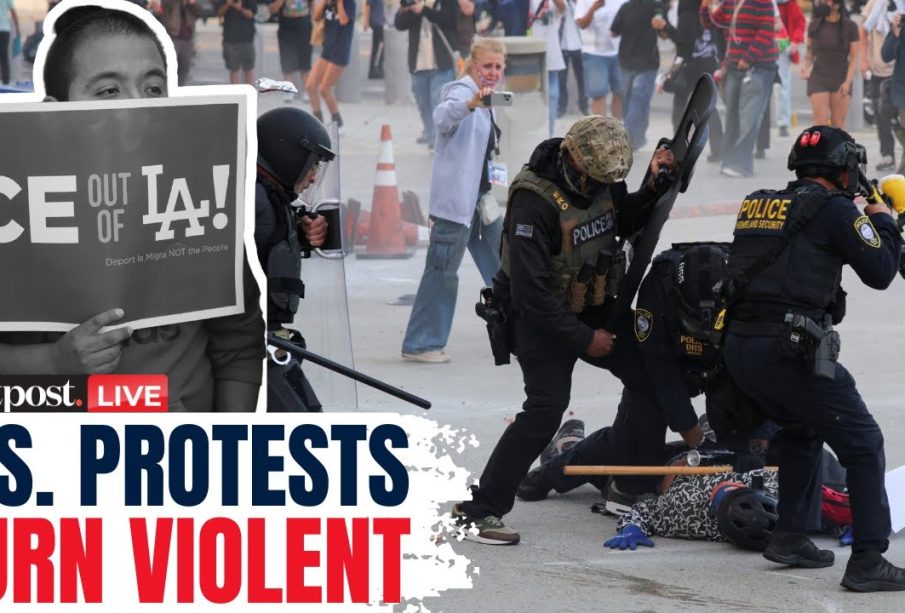Protests Erupt in Los Angeles Against Immigration Raids

Introduction
In recent months, Los Angeles has witnessed a surge of protests in response to a series of immigration raids conducted by federal authorities. These actions have sparked widespread concern and unrest, highlighting the ongoing immigration debate in the United States and its significant impact on local communities. As a vital cultural and economic hub, Los Angeles is at the forefront of the discussion on immigration policy and community safety.
Details of Recent Protests
Protests have occurred regularly, with thousands of residents coming together to voice their opposition to the raids. Demonstrators argue that these actions instill fear in immigrant communities and disrupt families. The protests began gaining momentum in early October 2023, following a series of raids across neighborhoods known for their large immigrant populations, where families were separated and workers were detained.
Organizations such as the Coalition for Human Immigrant Rights (CHIRLA) and local immigrant advocacy groups have organized rallies and marches to bring attention to the issue. Protesters carry signs reading “No Human Being Is Illegal” and “Defend Immigrant Rights,” demanding an end to the raids and a re-evaluation of immigration policies. They emphasize the importance of protecting vulnerable populations, particularly children who are affected by these actions.
Community Response and Government Reaction
Community leaders have expressed their outrage, emphasizing the need for local law enforcement to avoid complicity in federal immigration actions. Officials at the state level have also spoken out against the raids, with the Mayor of Los Angeles and California’s Governor advocating for more humane immigration policies. Supporters of the protests argue that the raids disproportionately target immigrant families and individuals contributing to society and the economy.
In response to the ramping tensions, municipal leaders have proposed measures aimed at protecting undocumented residents, including the establishment of a legal defense fund for those facing deportation and expanding access to resources that educate the community about their rights.
Conclusion
The ongoing protests in Los Angeles against immigration raids reflect a growing sentiment among residents advocating for a more compassionate immigration system. As the situation develops, the implications for local policies and community attitudes towards immigration are significant. These protests serve as a barometer of public opinion and a call for dialogue about the treatment of immigrants in the U.S. As Los Angeles grapples with these issues, it remains to be seen how local governance and federal policies will evolve, and whether these grassroots movements will lead to meaningful changes in immigration policy.









